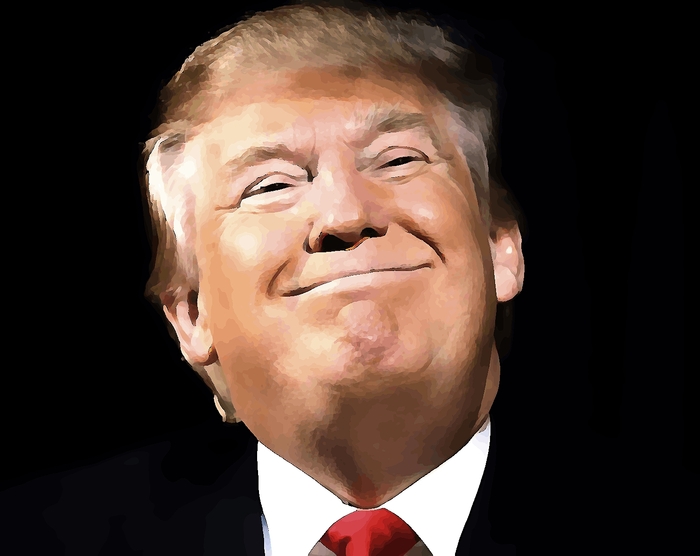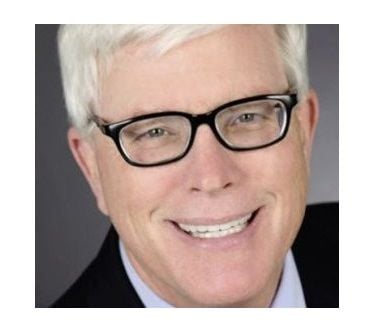
Is it better to be thought a lightweight and dismissed by rivals if you are in fact talented, ambitious and ready to strike? To be thought clueless when in fact you have a plan?
Now for the stretch on your part - and mine: What if President-elect Donald Trump is playing the Russians and Vladimir Putin as effectively as he played the U.S. media throughout 2015 and 2016?
What if the incoming president has a strategic vision that views China, Iran and radical Sunni Islamists as far greater threats to U.S. national security than Russia is? Even if Russia is rightly understood, as Senate Majority Leader Mitch McConnell, R-Ky., put it after President Barack Obama's imposition of sanctions, as "not our friend," and is "guilty, guilty, guilty" of interfering in our election and harassing our diplomats, as I and most conservatives believe.
I know the guffaws that just erupted. I have firsthand knowledge that the new president is not - or at least was not - educated in matters such as the nuclear triad or the difference between Hamas and Hezbollah. The collective, deep, probably unbendable assumption is that he just doesn't know much about many aspects of national security. From that assumption it is an easy, and dangerous, leap to "he's clueless, cannot learn and has no interest in learning."
That might be true. Or it might be that Trump is, first and foremost, a developer, who will bring a developer's habits and strengths to the presidency.
I've worked for real estate developers on huge projects for three decades. My law practice was built on helping them figure out and comply with complex statutory and regulatory regimes and knowing how the Environmental Protection Agency, Army Corps of Engineers and U.S. Fish and Wildlife Service worked.
"How and when do I get the permit, and what is it going to cost me?" are the questions most natural-resource lawyers hear from their land-owning clients. Any one of whom could have certainly learned the details but didn't need or want to. They wanted to get on with their project. They wanted it built yesterday.
To be a successful real estate developer is to commit to speed and risk, and to always be looking for the next deal. It sometimes means a dizzying change of course and often a partnership with an old competitor, even one with whom swords had been crossed. The next deal was always far more important than an old grudge. It is itself a strategy not to be bound by the battles of the past or by precedents.
We have been told for eight years, again and again, that Obama, on entering office, had a grand strategy. "Leading from behind" was one of its early formulations. Whatever will be passed off as the final definition of the long-running display of fecklessness that will be branded "the Obama Doctrine" in the memoirs ahead, we know for certain the milestones on the road it followed: unilateral cancellation of missile defense in Poland and the Czech Republic; the Russian "reset button";" precipitous withdrawal of U.S. troops from Iraq in 2011; the ineffective responses to Beijing's construction of artificial islands in the South China Sea; the red line in Syria erased; Ukraine invaded and Crimea annexed; Iran and Bashar al-Assad atop the ruins of Aleppo, Syria, and Europe awash in refugees; no breathing "peace process" involving Israel and the Palestinians but the "JV's" still in Raqqa and Mosul in Iraq and spreading their hate around the world; Libya splintered; Venezuela in ruins; Cuba rewarded for continued despotism without a hint of reform. The list could go on, even if we limit it to North Korea and the Iranian nuclear "deal."
If that is what a "grand strategy" gets you, perhaps not appearing to have any strategy at all is a good way to begin. Of course, anyone who believes retired Marine Gen. James Mattis, Trump's nominee for defense secretary, isn't thinking about the massive problem set willed to 45 by 44 in the context of a grand strategy aimed at the slow and patient reconstruction of American power and leadership isn't paying attention.
Richard Nixon arrived at 1600 Pennsylvania Ave. with a reputation earned over 20 years of an anti-Communism so profound that he couldn't possibly work with the Soviets, much less the Maoists, including Mao himself. Four years later, he and Henry Kissinger had achieved detente with the former and a partnership with the latter that upended every expectation of the pundit and academic class.
Hold on at least to the possibility that the gloomiest pundits and reporters are as wrong about Trump's capacity to govern effectively and constitutionally as we all were about his ability to win. It isn't like the chattering class hasn't been completely wrong before.
Previously:
• 06/16/16 Hillary's the real risk. If we want to stop her, we can't dump Trump
Comment by clicking here.


 Contact The Editor
Contact The Editor
 Articles By This Author
Articles By This Author
